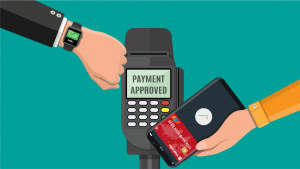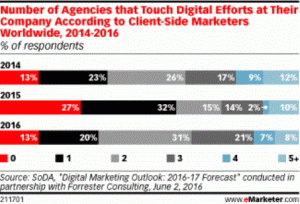— May 12, 2018

For some, May 25, 2018, will mark a turning point in their email marketing outreach, for others, an abrupt shift from what was once the Wild West of email marketing.
The impetus for these changes — the EU’s General Data Protection Regulation (GDPR) — has been heralded in some quarters as an occasion for much hand-wringing. Some have even nicknamed it “GDP-Argh.”
But that’s a futile and short-sighted view of the changes GDPR will bring. For one thing, there’s nothing marketers can do about it. You may despise GDPR but failure to comply can carry significant costs that go beyond just fines. For another, and even more importantly, there is a bright side to the EU forcing everyone’s hand — compliance will make your email marketing better. So rather than seeing GDPR as a headache, consider embracing it as a chance to improve customer relationships.
Here’s why:
It’s the customers’ data anyway
Looking at the customer data you collect as your brand’s property, as something you own, is misguided. Data is like any other form of personal property in that you shouldn’t just take it or try to finagle it out of the owner’s hands. Instead, you should ask permission to use it. And if a customer wants their data back, you should honor their request.
That also goes for any data previously collected. There is no grandfathering under GDPR — if you have old data collected without asking for consent, then you either need to purge it or reach out and ask for consent to keep it and continue using it. Overwhelmed by the idea of requesting new consent, UK pub chain JD Wetherspoon deleted its entire list of 650,000 customers last year. For some European marketers, the risk of running afoul of data consent laws isn’t worth the effort of asking for fresh consent and is too great to justify holding onto such data.
But there can — and should — be a middle ground. Consider purging extremely old data belonging to customers who have demonstrated no recent engagement, while asking for new consent from customers who have made a recent purchase or opened/read/clicked a recent email.
It gives you a chance to reboot your marketing
Broadly speaking, GDPR will force marketers to shift to permission-based marketing. This is a good thing. As marketing guru Seth Godin has noted, permission marketing is “…the privilege (not the right) of delivering anticipated, personal and relevant messages to people who actually want to get them.” In Godin’s view, permission isn’t a legal construct, it’s an agreement in which the consumer chooses to offer up their attention in exchange for something of value, like information or entertainment.
In other words, the stakes for marketers have now been raised. Instead of trying to hoodwink users into joining your email list, you should entice them with a “what’s in it for me?” reason to share their data. This is your opportunity to make a compelling case for the exceptional experience their data will allow you to offer.
And you’ll have ample opportunity to make that case. For instance a double opt-in (a second step in the subscription process) provides space to reinforce the value you offer and bolster your customers’ willingness to sign up for your emails.
So don’t sweat the details
From a marketing perspective, GDPR presents a golden opportunity to create a more useful (though likely smaller) email list, made up of genuinely interested customers.
That’s why rather than trying to parse the legal language of GDPR, marketers should make all consumer data permission-based. This goes for U.S.-based marketers, too. For them, it’s not a question of whether a (potentially small) percentage of customers are located in Europe, but rather a question of whether treating customers differently based on location makes good business sense. Let’s face it — it doesn’t.
The latest uproar over Facebook’s handling of consumer data should dispel any misconception that U.S. customers are sanguine about how you use their data. A better approach is to earn the trust of all your customers, no matter where they are.
Digital & Social Articles on Business 2 Community
(38)








